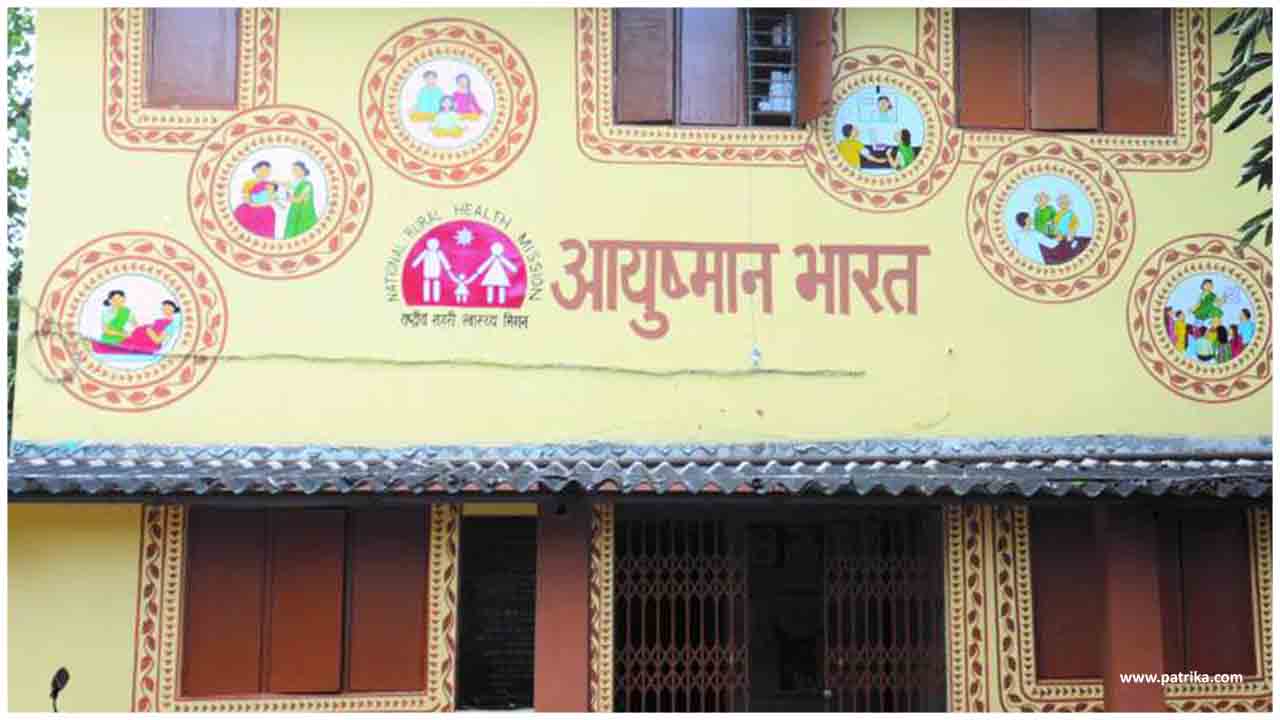During the COVID-19 pandemic, the resilience of India’s public health systems, particularly in the rural hinterland, was reflected through continued operationalization of the Ayushman Bharat Health and Wellness Centers (AB - HWCs) and continued delivery of non-COVID essential health services while also meeting the urgent tasks of prevention and management of COVID-19.
An additional 13,657 HWCs were operationalized within the period of the pandemic itself (between January to July 2020) to ensure that an array of healthcare reaches the vast community of citizens they serve. As of 24th July 2020, a total of 43,022 HWCs are operational across different parts of the country.
In the week starting 18th July till the 24th of July, a total of 44.26 lakh people have benefitted from the health and wellness services being provided by the AB-HWCs. The cumulative total footfall among the HWCs since their inception (i.e. 14th April 2018) consequently rose to 1923.93 lakh. This is a testimony to the foundational work of the HWCs in their communities. They have played a pivotal role in ensuring that non-COVID essential services are not hampered and continue to be provided.
32,000 yoga sessions were conducted in last week in AB-HWCs all across India. 14.24 lakh yoga sessions have been conducted in total by the HWCs since their inception.
Apart from this, HWCs are playing a major role in mass screening for non-communicable diseases. In the last week alone, 3.83 lakh individuals were screened for hypertension, 3.14 lakh for diabetes, 1.15 lakh for oral cancer, 45,000 for breast cancer and 36,000 for cervical cancer. Since their inception, the HWCs have tested a total of 4.72 crore individuals for hypertension, 3.14 crore for diabetes, 2.43 crore for oral cancer, 1.37 crore for breast cancer and 91.32 lakhs for cervical cancer.
The AB-HWCs have been very useful in the pandemic as their population-based screenings for non-communicable diseases have provided the State health authorities a list of those with chronic diseases and the vulnerable, co-morbid population which has to be protected from COVID-19 on priority. Their ability to rapidly screen individuals with co-morbidities and provide advice for protection against infection has been instrumental in winning public trust. Immunization sessions have been organized by the HWC teams where medical checkups of pregnant women are ensured apart from the delivery of essential medicines to TB, leprosy, hypertensive and diabetic patients.
Meanwhile, the focused efforts of Centre and State/UT governments on early detection and isolation through aggressive testing and efficient clinical management of hospitalized cases have shown results with continuously falling Case Fatality Rate and improving Recovery Rate.
With effective containment strategy, aggressive testing and standardized clinical management protocols based on holistic Standard of Care approach, the Case Fatality Rate has significantly dipped. The Case Fatality Rate is progressively falling and currently, it is 2.28%. India has one of the lowest fatality rates in the world.
Continuing the streak of more than 30,000 recoveries per day for the 4th successive day, 31,991 patients were discharged in the last 24 hours. This has taken the total recoveries beyond 9 lakh and the number currently stands at 9,17,567. The Recovery Rate is 64%.
As a result of low mortality and more people recovering, the recovered cases exceed the active cases (4,85,114) by 4,32,453 today. Medical attention continues to be provided to all active cases in hospitals and home settings.

 Ayushman Bharat Health and Wellness Centers continued delivery of non-COVID essential health services during pandemic
Ayushman Bharat Health and Wellness Centers continued delivery of non-COVID essential health services during pandemic














.jpg)



















